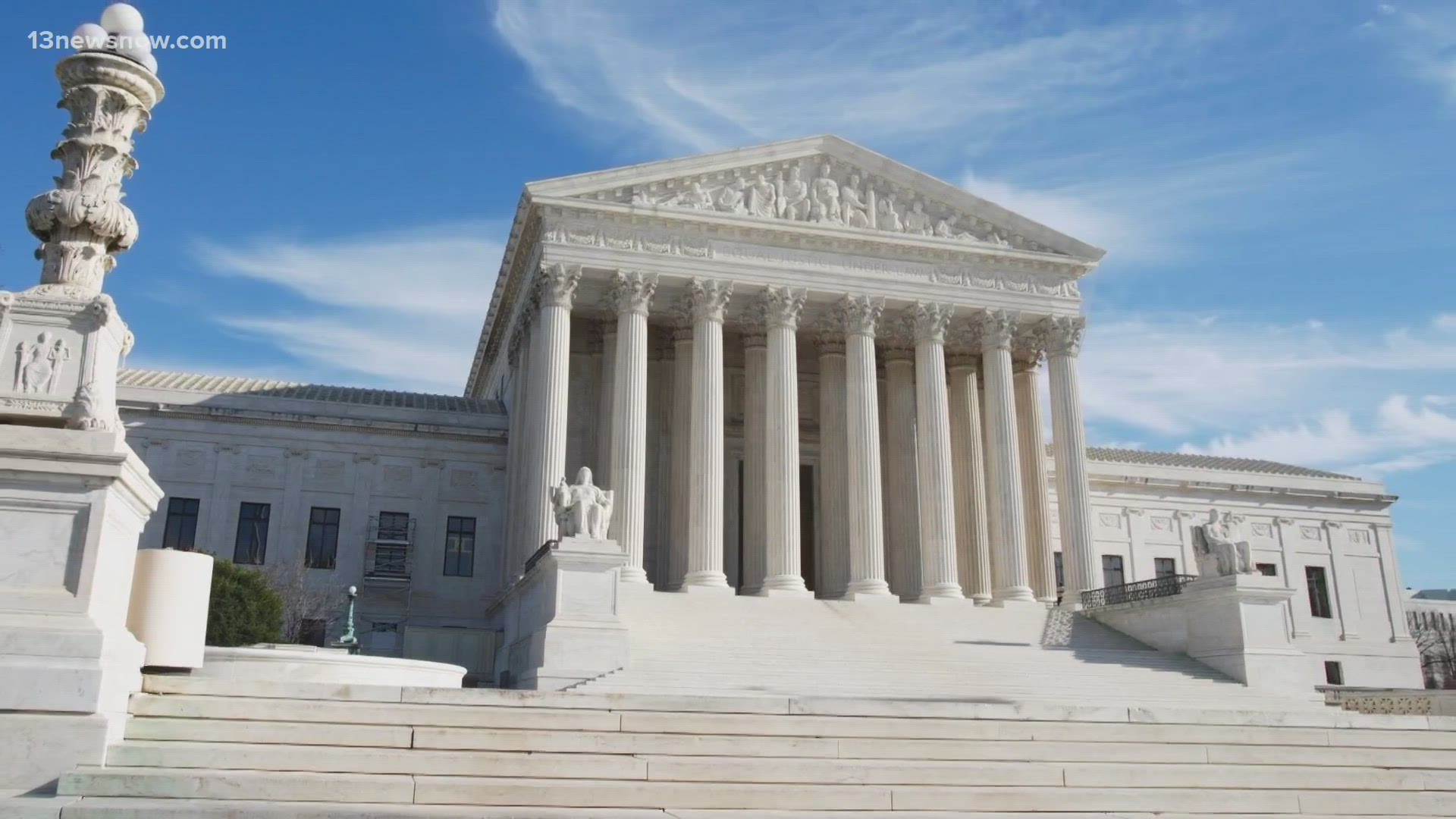NORFOLK, Va. — The U.S. Supreme Court will hear the appeal of a decorated Army veteran who claims the government shortchanged his GI Bill benefits.
The court announced Monday that it would hear the case, Rudisill v. McDonough, which argues that service members enrolled in different versions of the GI Bill -- the Montgomery GI Bill and the more generous Post-9/11 GI Bill -- should be entitled to benefits under both programs up to a maximum of four years.
"It highlights an issue most veterans weren't aware of. Most folks we talked to didn't know they were being short-changed. They didn't know the VA was doing things incorrectly," said David DePippo, Assistant General Counsel for Dominion Energy, who is working pro bono on behalf of the plaintiff, James Rudisill.
The case could open up additional college tuition money for an estimated 1.7 million vets, totaling in billions of dollars.
Members of the legal team representing the plaintiff say that should they prevail, it will be "life-changing" for many vets across the country.
"This is quite significant to an entire generation of veterans," said Tim McHiugh, an associate in the Richmond office of the Troutman Pepper law firm.
In an interview with 13News Now, he said: "In some instances, veterans would stand to gain in some cases, $125,000 in additional benefits, depending on how they use them for schooling. This is real money with real value to veterans and their families."
Virginia Attorney General Jason Miyares led a bipartisan coalition of the attorneys general of 33 states and the District of Columbia in asking the Supreme Court to hear the case.
The lawyers for the plaintiff and the federal government will argue their cases before the Supreme Court when it starts its new term on October 2. It's believed this case will be heard in November, with a final ruling to come in Spring, 2024.

